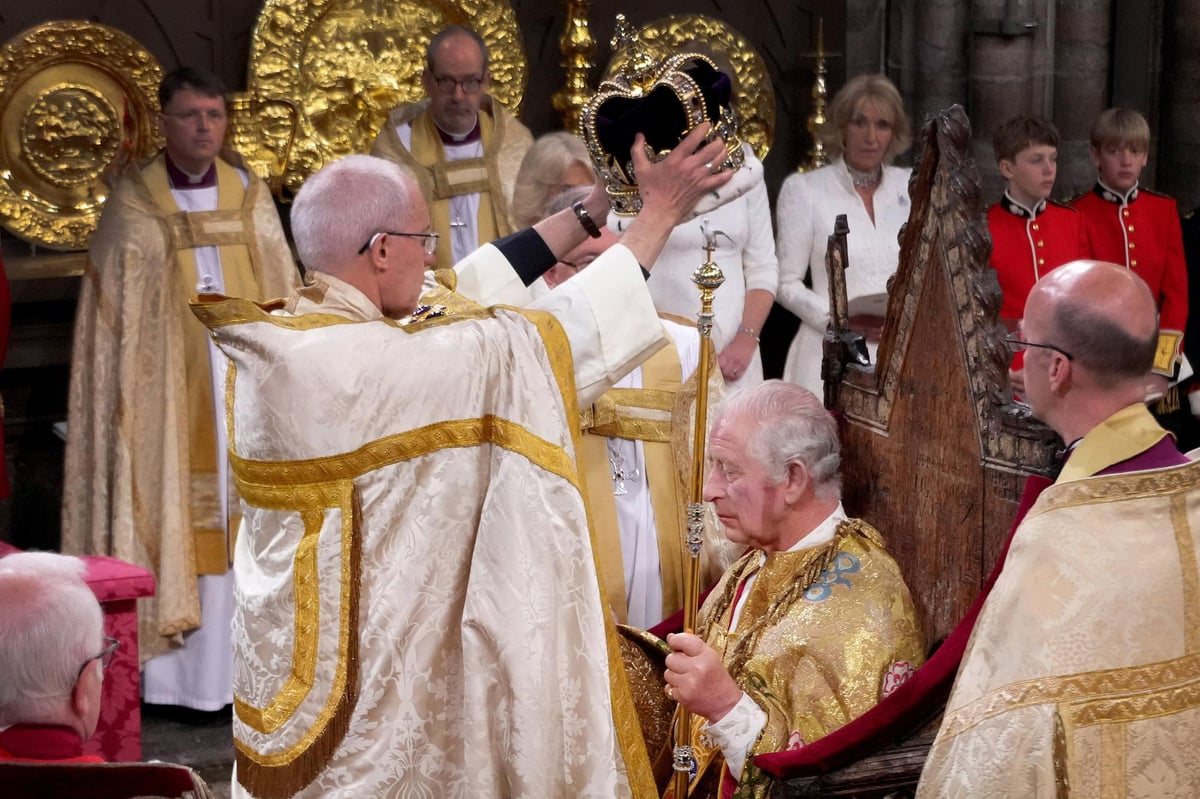Copyright scotsman

It may be that we are witnessing the beginning of the end of the monarchy in Britain. It is an institution which time has passed by. When Australia leads the way and becomes a republic that will be the catalyst for a great reset in the UK. A new beginning. The country will be renamed Britain instead of the UK, with of course a new secular anthem rather than the mournful dirge God Save the King, and GB would return as the international moniker. The flag would remain as is. Moving from a monarchy to a republic would present challenges and problems, of course. For example, would the RAF continue to be named thus, and would the Royal Navy be renamed the British Navy and the prefix HMS before warships’ names removed? Nevertheless an opportunity would exist for wholesale constitutional reform. Parliament would move to a new location in a new campus near the centre of Britain – which the Ordnance Survey estimate to be near Dunsop Bridge, Lancashire – and the Palace of Westminster would be a tourist attraction. The other royal palaces and the huge royal estates would be transferred to the state to be developed for the nation. The Scottish, Welsh and Irish parliaments would be closed down saving billions and their buildings handed over to their respective cities’ universities, with responsibility for their affairs transferred to strengthened Scottish, Irish and Welsh departments within government. The House of Lords would be abolished and a new democratically elected body set up to replace it, with the responsibility for choosing the president whose duties would be largely ceremonial. These are some of the great opportunities the end of the monarchy would give Britain: in a fresh start, a rebranding, a reformation, and perhaps a new enlightenment. There will be many others. William Loneskie, Lauder, Scottish Borders A policeman’s lot... As a retired police officer who completed 33 years service, I am certain that I got things wrong and upset many members of the public as well as fellow officers. Upsetting the public, even when you are right, goes with the job. Situations can be difficult to deal with, but it was never a popularity contest. It is especially difficult when dealing with people with entrenched opinions who believe their view carries the most weight. Susan Dalgety’s article “Toxic Police Scotland has a big choice to make over gender war” (Perspective, 1 November) is so laced with sarcasm, both casual and unnecessary, that it devalues any point she is trying to make. Apparently, a former MP is a hypocrite, and a counter-protestor was a “male stripper”. Did/should we need to know that? I suspect if said alleged male stripper had said something similar about someone on her side of the argument Ms Dalgety would rightly have condemned him. The mockery of officers trying to deal with volatile circumstances does Susan Dalgety no favours. She refers to the campaign group Women Won’t Wheesht, who I believe rightly won their arguments through a process of persistence and reasoned argument, not belittling those perceived to be against them. Police Scotland has definitely got faults, and these should be rectified, but wholesale mockery of the organisation is not the way. It seems that one woman who has “wheesht” is the current Chief Constable Jo Farrell, who seldom if ever puts her head above the parapet to support those officers and staff she purports to lead. This should not be blind support but at least include an effort to “educate” the public, including Ms Dalgety, about the inherent difficulties of the job, which most of them could not do or would not want to do. Charlie Selcraig, Stow, Scottish Borders Second-class MSPs I just had to respond to Ian Moir’s letter headlined “Minority Report” (Scotsman, 31 October). He suggests to get a more accurate political balance in Holyrood we should adopt a system which would mean an increase in the number of list MSPs. However, the current list system is an awful one. As a local authority councillor, when asked by constituents who their MSP is, I always give them the person who was elected “first past the post”. They are never interested in the contact details of our seven – yes seven – list MSPs. The Scottish Parliament should be elected the way I am elected. We should have multi-member constituencies returning three or even four MSPs. I am a councillor in a multi-member ward along with one SNP, one Independent and one Conservative councillor. There are no “second-class” councillors as we all have equal standing and were elected proportionally based on the votes cast. People know exactly who they are voting for and the choice is not left up to a political party’s list. There are list MSPs who have never actually won an election but rely on getting their names on their party lists rather than by convincing voters they should put a number 1 choice against their name. This is not healthy and the sooner it is changed the better. We need to have an electoral system for the Scottish Parliament that makes MSPs more accountable by being truly elected. We shouldn’t have second-class list MSPs, many of whom are invisible. Cllr Willie Robertson, Scottish Liberal Democrat Councillor for Kinross-shire, Perth and Kinross Council Relaxed approach The current anguished discussion of the country’s economy and the approaching Budget have brought to mind what a former chancellor (possibly Derick Heathcot-Amory) said in a broadcast about his latest Budget. He explained that his task was to give a little pressure on the accelerator or a touch on the brake as necessary to keep the economy moving smoothly along. Happy days! S Beck, Edinburgh Grieve grievance Further to the excellent letter from Robbie Macdonald about Hugh MacDiarmid (3 November), as a schoolboy I had just bought a volume of MacDiarmid’s poems and had it in my hand when I called on a school friend. His father (whom I think came from Langholm) explained to me that MacDiarmid was actually Christopher Grieve and the nastiest person he had ever known (I think they may have been schoolmates) – nevertheless an excellent poet. Dr A McCormick, Terregles, Dumfries and Galloway Freudian slips I note the surely orchestrated chorus of they think we are “too wee, too poor, too stupid” to run Scotland re-emerging from Scottish nationalists. In 30 years-plus, I can say without hesitation that the only people I have ever heard use these words are Scottish nationalists. Freud would be interested, I am sure; is that their deepest subconscious fears surfacing? Most on the pro-UK side concede that Scotland on its own would survive. The question has always been is it worth it? Alexander McKay, Edinburgh China’s motives Labour MP Martin McCluskey (Perspective, 31 October) has a somewhat fanciful view of the Chinese involvement in the proposals for investment in Scotland. I had always thought that business leaders went into major projects to make a profit, so I ask myself why does a company on the other side of the world want to involve itself in electricity generation in Scotland. Surely the plan is not to have a row of giant pylons with overhead cables all the way from Ardersier to Beijing? Or is it more likely that China seeks to control the means of electricity creation here in Scotland? Also, where will the profits go? I know where I’d put my bet! After the Second World War we handed shipbuilding over to Far Eastern shipyards who could produce much-needed larger and cheaper cargo ships on time. Later, we gave Japan most of our car manufacturing jobs. Now McCluskey says he wants to hand our energy production to the Chinese, Isn’t that another act of economic self-harm? Bruce Proctor, Stonehaven, Aberdeenshire Write to The Scotsman We welcome your thoughts – NO letters submitted elsewhere, please. Write to lettersts@scotsman.com including name, address and phone number – we won’t print full details. Keep letters under 300 words, with no attachments, and avoid ‘Letters to the Editor/Readers’ Letters’ or similar in your subject line – be specific. If referring to an article, include date, page number and heading.



